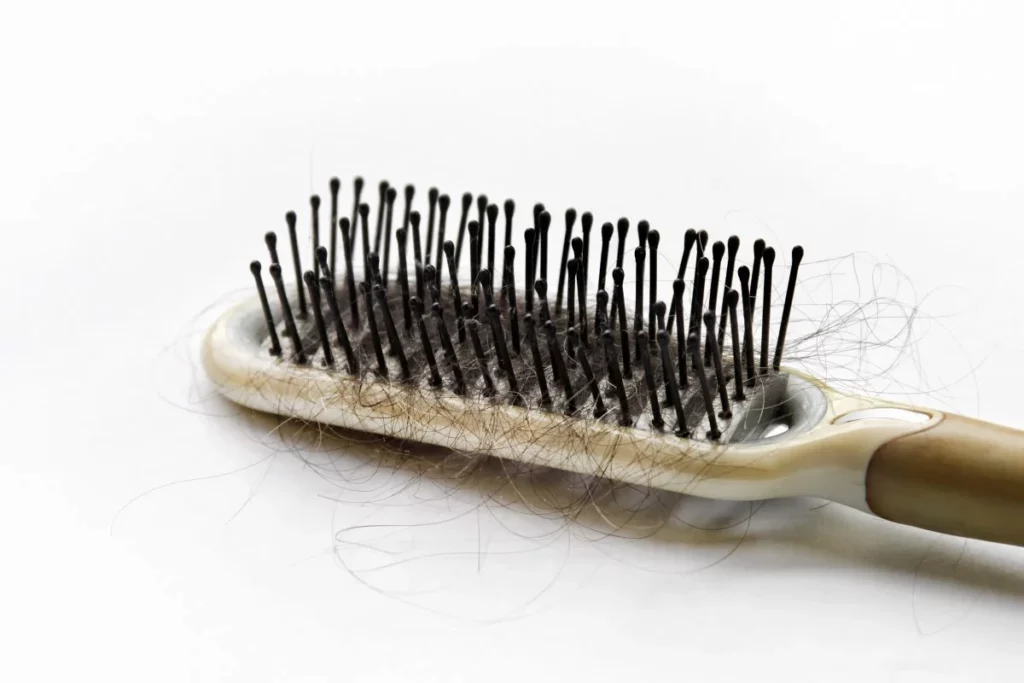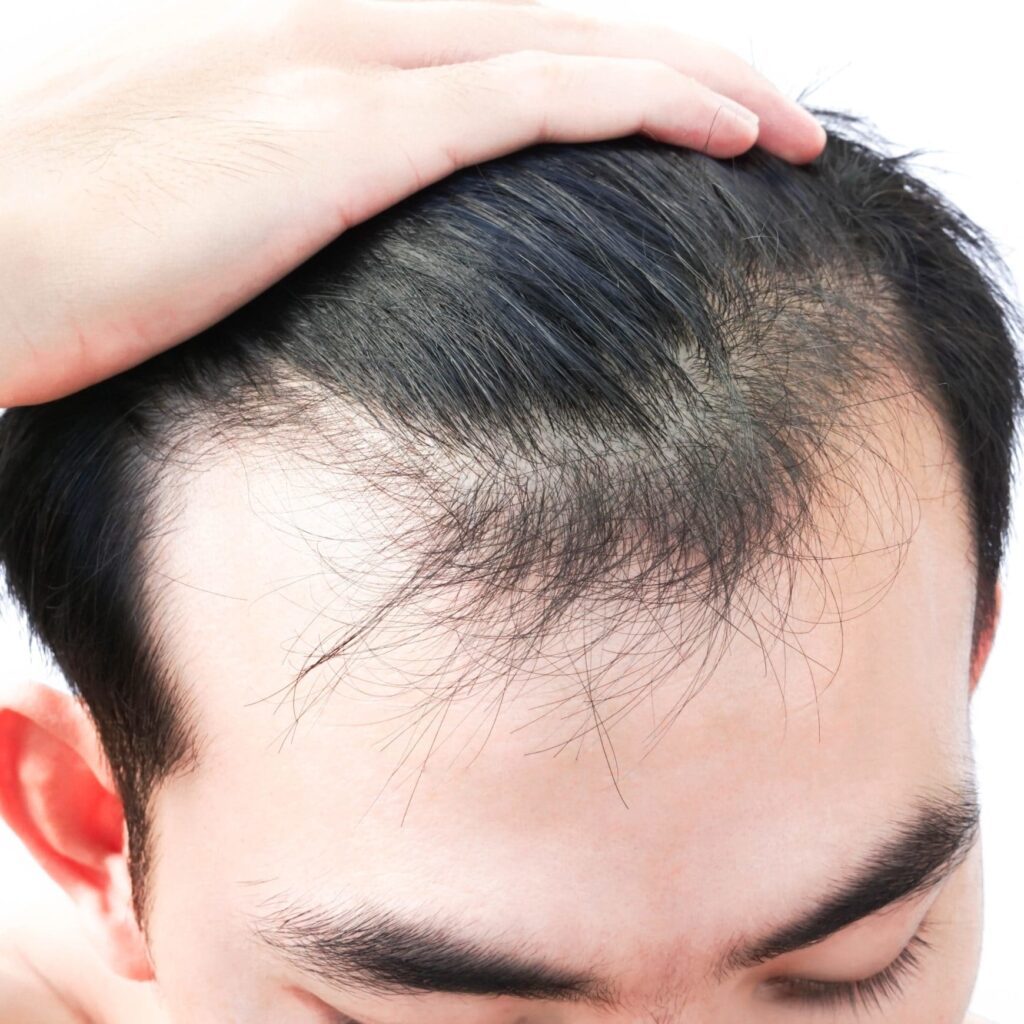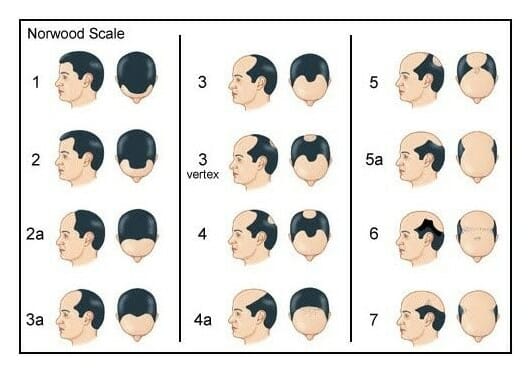Baldness (androgenic alopecia) is the most common type of hair loss. It affects an estimated 80 million individuals in the U.S.
Hair loss is one of the most common side effects of chemotherapy. Alopecia areata affects up to 6.8 million people in the U.S.
Hair loss has many possible causes. The most common include:
- Hereditary hair loss from genetics (genes you inherit from your parents).
- Fungal infections on the scalp.
- Hairstyles that pull the hair tightly (such as braids, hair extensions or tight ponytails).
- Haircare that may cause damage due to processing (including perms and bleach).
- Hormonal changes (such as pregnancy, childbirth or menopause).
- Medical treatment (such as chemotherapy and certain medications).
- Nutritional deficiencies (especially not getting enough iron or protein).
- Stressful events (like having surgery or losing a loved one).
- Thyroid disease.
In some cases, the cause of hair loss is obvious — for example, if you’re losing hair while going through chemotherapy. Other times, your healthcare provider will need to do some detective work to figure out what’s causing your hair loss.
To determine the correct diagnosis, your provider may:
- Ask about your family history, including if any relatives experienced hair loss and at what age.
- Look at your medical history.
- Order blood tests to measure thyroid function and iron levels.
- Examine your scalp for signs of infection.
- Take a scalp biopsy to check for skin disease.
You can’t prevent all types of hair loss, but you can take steps to help keep your hair healthy and minimize loss. To help prevent hair loss:
- Eat a healthy diet that includes enough calories, protein and iron.
- Find ways to cope with stress.
- Manage thyroid disease or other medical conditions that could result in hair loss.
- Avoid hairstyles that pull hair tightly.
- During chemotherapy treatment, try a cooling cap.
You should call your healthcare provider if you experience:
- Burning, itching or irritation on your scalp.
- Excessive daily shedding.
- Loss of hair on your body as well as your scalp.
- Sudden loss of large amounts of hair

















